
Nine Indigenous and Community Leaders Share Why We Need to Take Action on MMIWG
In our previous Week Without Violence blog post, we talked about the complex issue of violence against Indigenous women and girls, and how understanding requires us to take a wide-angled look that considers the interrelated issues of colonialism, racism and patriarchy. We also unpacked the National Inquiry into Missing and Murdered Indigenous Women and Girls’ final report, and shared some of our key takeaways.
Now, we want to create space for the voices of those who are impacted by this violence, and the folks who are standing in solidarity with Indigenous women and girls, and creating change in their communities.
We are grateful to the many people who spoke to us about these challenging issues, and honour the time, energy and labour they contributed to our campaign.

Why do you think it’s important for all of us to read the final report and listen to the truths shared?
Simran Sarwara, Youth Community Developer at PeerNetBC
The onus needs to be on us to not only understand the report and its contexts, but also commit to confront our own internalized biases, informing the way we engage with these issues and the communities that experience them.
The report is also another means to critically examine how the media chooses to report on the issues of Indigenous communities. Stories are often sensationalized and reduced, which further creates incorrect assumptions and deepens the biases of audiences who are not personally affected by any of these problems. Therefore, accessing this resource is necessary to better inform these narratives so they are holistically reflective of the lived experiences of Indigenous women, girls and 2SLGBTQQIA peoples, and not of the perspectives of non-Indigenous groups attempting to make sense of the issues from places of privilege.
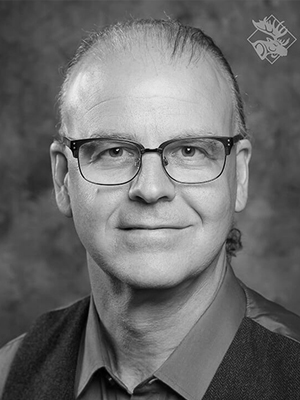 David Stevenson, Executive Director of the Moose Hide Campaign
David Stevenson, Executive Director of the Moose Hide Campaign
The report lays out a lot of information about institutional changes and cultural changes. And underneath all of that is a revelation into the blind spots in Canadian culture and history. The report is an opportunity for people to see that Canada has a lot of work to do as a nation, and on our morals, ethics, behaviors and our understanding of who we are. For me, reading the report is a way to shed light on a dark spot. Those reading the report will walk away armed with the knowledge to engage citizens on this issue.
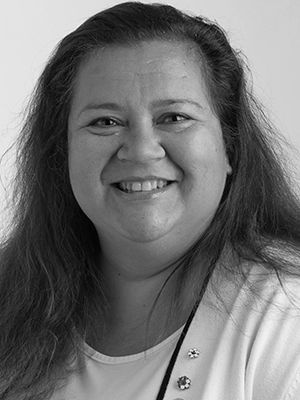 Kim Baird, Consultant at Kim Baird Strategic Consulting and Former Chief of Tsawwassen First Nation
Kim Baird, Consultant at Kim Baird Strategic Consulting and Former Chief of Tsawwassen First Nation
It's important that everyone reads the report and understands the issues that are raised because it highlights how violence, particularly against Indigenous women, has been culturally and systematically normalized in Canada. It's shocking and it's uncomfortable, but people need to know that all these systems have failed Indigenous women. We read stories about child welfare and child apprehension, over-representation in the criminal justice system, poverty, policing and RCMP’s failure to protect Indigenous women, and instead further criminalize and marginalize them. These are structures that we should examine, and this report helps us identify them.
Chastity Davis, Principal of Chastity Davis Consulting and Co-Founder of the Professional Aboriginal Women’s Network
It's important for us as Canadians to understand other aspects of our history and review the causes and objectives of this violence. Canada was created at the expense of Indigenous women and girls through psychological, physical and sexual violence. We don't get the opportunity to explicitly learn that history in elementary, secondary and post-secondary education. If instead of thoroughly examining the wounds of violence and the root-causes of this violence, we choose to put a band-aid on our scars, then the crimes committed against Indigneous women and girls will continue.
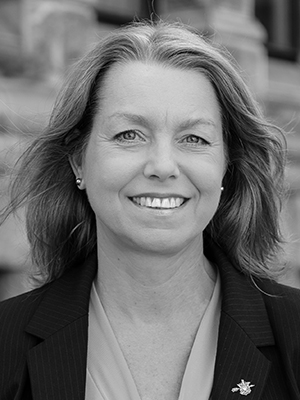 Mitzi Dean, Parliamentary Secretary for Gender Equity
Mitzi Dean, Parliamentary Secretary for Gender Equity
It’s important for us all to recognize the amazing courage that survivors and family members have shown in coming forward. A lot of people still don’t realize the depth and breadth of abuse and harm that Indigenous women in our communities experience. People really need to know that this is a common, oppressing and urgent matter. We need to make sure that people aren’t complacent and it becomes a priority for everyone.
The final report includes recommendations directed at individuals, including to:
Decolonize by learning the true history of Canada and Indigenous history. Such as reading the report and develop knowledge;
Use what you have learned to become an ally; and
Confront and speak out against racism, sexism, homophobia and transphobia; specifically speaking out against violence against Indigenous women, girls and 2SLGBTQQIA people
How can we apply these recommendations in our everyday lives?
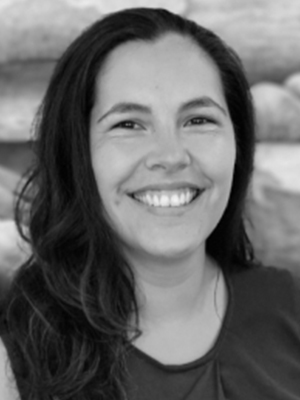 Kris Archie, Executive Director at The Circle on Philanthropy
Kris Archie, Executive Director at The Circle on Philanthropy
First we must recognize our own experience of harm, and the ways we might cause harm to other people, in order for us to bring our human capacity and empathy to this report. Next, we need to start the conversation. Our family is the institution that shapes our values and beliefs. It is also one of the most challenging and defensive environments for people to begin this conversation. If we want to live in a different world, we must be willing to transform the way we behave behind closed doors, the way we talk around our kitchen table. We need to build the skills required to facilitate these conversations as these spaces will create the opportunity for us to heal and pass along a transformed and transformative set of values. I also encourage settlers to invest their own time in learning and doing this work before engaging and seeking labour from Indigenous peoples.
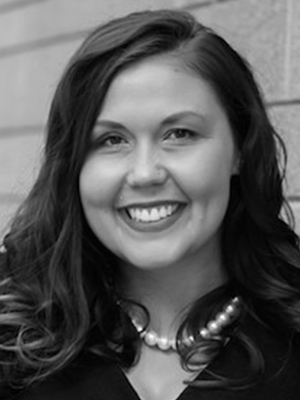 Chastity Davis, Principal of Chastity Davis Consulting and Co-Founder of the Professional Aboriginal Women’s Network
Chastity Davis, Principal of Chastity Davis Consulting and Co-Founder of the Professional Aboriginal Women’s Network
Allies can elevate, amplify, make space for and include Indigenous women in their reconciliation and allyship efforts. People are seeing negative stories about Indigenous women as a dominant narrative in Canadian media, but Indigenous women working hard to create change for their families, communities and all of Canada. This message is not getting out when these women and girls are invisible in the mainstream media. Allies can start by creating spaces to gather with Indigenous women, to learn about their experiences in this country. Instead of resolving to read reports, try being in the same room as Indigenous women who are ready and willing to share, and stand together as women. We are not asking our allies and the government to fix us or heal us, but to provide us with the resources necessary to heal and empower each other.
David Stevenson, Executive Director of the Moose Hide Campaign
Allies can continue to learn and move away from treating the findings as these hard chunks of two-dimensional facts that we need to implement through government institutions. Be creative and expressive with the findings in a way that makes sense to you. Let’s take the ‘Calls to Justice’ and continue to breathe life into the work through artistic expressions so that more people will be engaged in this process.
Which ‘Calls for Justice’ do you see as the most urgent and what do you want to see happen?
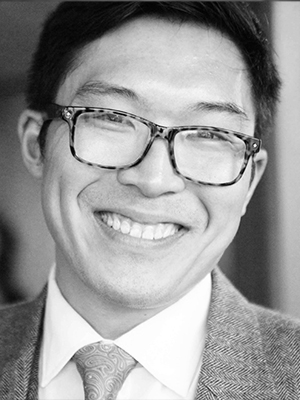 Eugene Kung, Staff Lawyer at West Coast Environmental Law
Eugene Kung, Staff Lawyer at West Coast Environmental Law
It’s important to have a look at all of the ‘Calls [for Justice’] and think about them as interconnected and systemic.
We should be thinking about the justice system and what function we want it to play in our society, because it’s clearly broken. The disproportionate number of Indigenous peoples, and Black, Brown and other people of colour in our justice system is not a coincidence, it’s by design. And it goes all the way through the justice system, from law enforcement to the court.
We should also be thinking about the connection between violence against the land and violence against women, as well as the very specific correlation between resource extraction and violence against Indigenous women in the form of workcamps. There is a clear spike in drug use, sex work and sex trafficking, sexual assault and abuse in the towns, usually rural, often Indigenous areas. We need to examine the connections between these two types of violence.
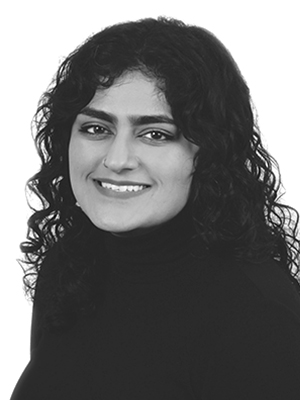 Tanvi Bhatia, Writer, Facilitator, and Community Organizer
Tanvi Bhatia, Writer, Facilitator, and Community Organizer
They’re all very urgent and I really do encourage everyone to read them. A good place to start is the ‘Calls for Justice’ to all Canadians. Additionally, it is important to center and amplify Indigenous voices. We need more Indigenous voices in newsrooms and in positions of leadership where they are in charge of creating the content that represents their own lives. This is incredibly important to me.
We can’t address the report with a single issue focus because it requires making greater, central, systemic and cultural changes. Change does not exist in isolation, you can't change one thing and expect everything to change. All the calls need to be answered in conversation with each other.
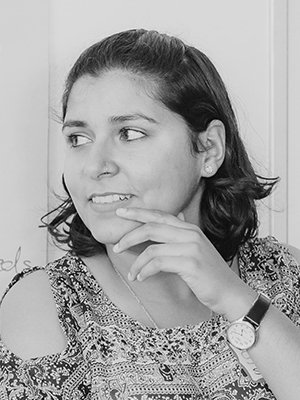 Simran Sarwara, Youth Community Developer at PeerNetBC
Simran Sarwara, Youth Community Developer at PeerNetBC
I’ve encountered a white savior complex, which suggests that because communities are going through traumas, they don’t really know what’s good for them. There seems to be a strong connection between policing Indigenous peoples, especially Indigenous women who are engaged in sex work. We need to be mindful of how we approach the topic of sex work so as not to come across as trying to alleviate the situation in a way that Indigenous women won’t have to engage in sex work, which takes away from the right for folks to choose to do so. So, I am particularly interested in the ‘Calls to Justice’ where there is a demand for recognizing the autonomy of Indigenous women, girls and 2SLGBTQQIA peoples in all facets of their lives, and in a way that equitably supports their navigation of systemic barriers.
Kim Baird, Consultant at Kim Baird Strategic Consulting and Former Chief of Tsawwassen First Nation
I like the idea of the Ombudsperson on human rights so that if these systems continue to fail Indigenous women, as they have for decades (if not centuries), they have a place to go. I’d like to see inspectors with a specific focus on ensuring that Indigenous women are treated properly. Hopefully it's not just another report that gathers dust, but I think organizations can do more to convene people that want to work in that space, and to amplify those voices that are looking for more foothold.
Kris Archie, Executive Director at The Circle on Philanthropy
I’m passionate about issues that are related to child welfare, similar to the work of the TRC, their calls to justice that relate to family reunification and child welfare, which are the most important. One of the ways that we can do our biggest healing is in our families and with our children, and we can’t do that if our children continue to be removed and kidnapped by the state. One of the other big pieces is recognizing the self-determination of Indigenous communities to decide for ourselves how and when we want to do this work.
What role should organizations like the YWCA play? How can we support this work?
Simran Sarwara, Youth Community Developer at PeerNetBC
If the YWCA is looking to practice allyship, you, and a lot of other organizations and individuals, need to drop the word “allyship” and move away from the term as some sort of status to strive for. Your work should require you to always challenge yourself to stand in solidarity with the communities you seek to support. This may consistently put you in a place of discomfort. When you’re acting on the ‘Calls for Justice’ to be an ally, you should never seek to be in a place of comfort, or have a sense of completeness. Because it is a process that’s ongoing and requires you to confront a lot of your own internalized biases. When allyship gets to that point, some folks decide to stop or resist such confrontations with themselves and their values.
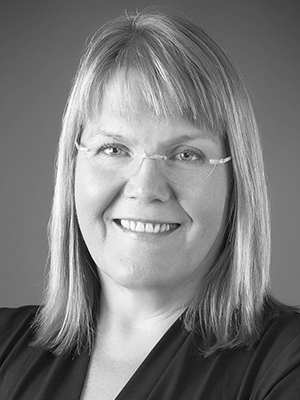 Deb Bryant, CEO of YWCA Metro Vancouver
Deb Bryant, CEO of YWCA Metro Vancouver
First and foremost, we need to be informed about what the report said and what the ‘Calls to Justice’ are asking for. It is important for us to also make a public commitment to reconciliation as clearly as we can, and to empower our communities to hold us accountable. Where possible, we need to embed these recommendations into our own work, and build the right measures of success to ensure we are contributing to reconciliation and supporting substantive equality for all Indigenous peoples, especially women and girls.
Tanvi Bhatia, Writer, Facilitator, and Community Organizer
YWCA mentioned representation several times before, and it is important to address the fact that representation needs to go beyond tokenism. Our conversation is moving beyond the idea of representation to who actually holds power.
Organizations like the YWCA can help centre Indigenous voices, put Indigenous people in positions of leadership and defer to indigenous people on these kinds of issues. What often happens is that minorities are brought in to lower positions, and the people who are making decisions in the end do not represent the respective communities.
We should remember that silence is being complicit. Silence is being in agreement with whatever the dominant view is. I am looking forward to seeing what the YWCA does after this.
What do you think should be done first in order to implement these ‘Calls for Justice’?
Eugene Kung, Staff Lawyer at West Coast Environmental Law
Resist the temptation, which is grounded in the same colonial structure, of putting that work, that emotional labour back onto the backs of Indigenous peoples. Part of the reason that it has been such a challenging conversation within the country is because — and these are generalizations — for Indigenous peoples and their allies, their expectations and the hope was for justice and to move towards justice, and for non-Indigenous folks, it seems to be driven by a desire to not feel guilty. And that’s why we have a lot of performative actions of allyship that are really centering the experiences of the colonizers, in terms of feeling guilty and alleviating that feeling of guilt. An Indigenous friend of mine said something once, and I hold it in my heart, that if you, as a non-Indigneous person, feel good about your reconciliation efforts, you’re doing them wrong.
 Kris Archie, Executive Director at The Circle on Philanthropy
Kris Archie, Executive Director at The Circle on Philanthropy
It’s important to acknowledge the healing that’s required by men, to recognize the ways in which the patriarchy harms men, in the same way that white supremacy harms all of us, white or racialized. It both benefits men and it harms them through normalization of toxic masculinity and other forms of patriarchy. Also, the RCMP and police need to do their own work to acknowledge and publicly declare their role in this work. They will need to do healing and come to a place of acknowledgement where they recognize that they have absolutely been and continue to be involved in harming not just Indigenous women but Indigenous communities. Until that acknowledgement takes place, there is a level of pain that will always exist; in the same way that pain existed in the Indian residential schools, until all the different parties that were involved did their work, they came to their reckoning and it’s important for the police to do the same.
Last Words…
 Kris Archie, Executive Director at The Circle on Philanthropy
Kris Archie, Executive Director at The Circle on Philanthropy
I thank all the people, all of the story-tellers, all of the children, all of the commissioners, all of the women, the counsellors, all of the people who were involved in helping this inquiry happen. I thank them for their labour and for their legacy, the legacy of healing and accountability and justice is possible because of their work. That makes me feel like we have a possibility for a different kind of world. I can’t think about their words on pages unless I’m also remembering all the labour that took place in order for us to read this report. They did some major work, they did some heavy-lifting. And I imagine that a lot of them are actually experiencing a lot of pain and harm. We need to acknowledge that they also need healing after the emotional labour they have gone through for this report.
Mitzi Dean, Parliamentary Secretary for Gender Equity
Now is the time for action. Everyone can take action and everyone can make a difference. If you’re not thinking of what you can do, then you are contributing to the same old system. As the Minister of Indigenous Relations and Reconciliation said, “We have to destroy the status quo because look at the harm that it’s done.” So we actually have to dismantle the system. We all have an opportunity and we all have a duty now to be doing things differently. That’s how we can move the dial, and that’s how we can move things forward and create new systems so we don’t have to go back again.
Please note: This post includes a selection of responses from the interviews we conducted. If you are interested in reading the full narratives, we encourage you to stay tuned, as we will publish them at a later date.
Join our conversation on our Facebook, Twitter and Instagram.





